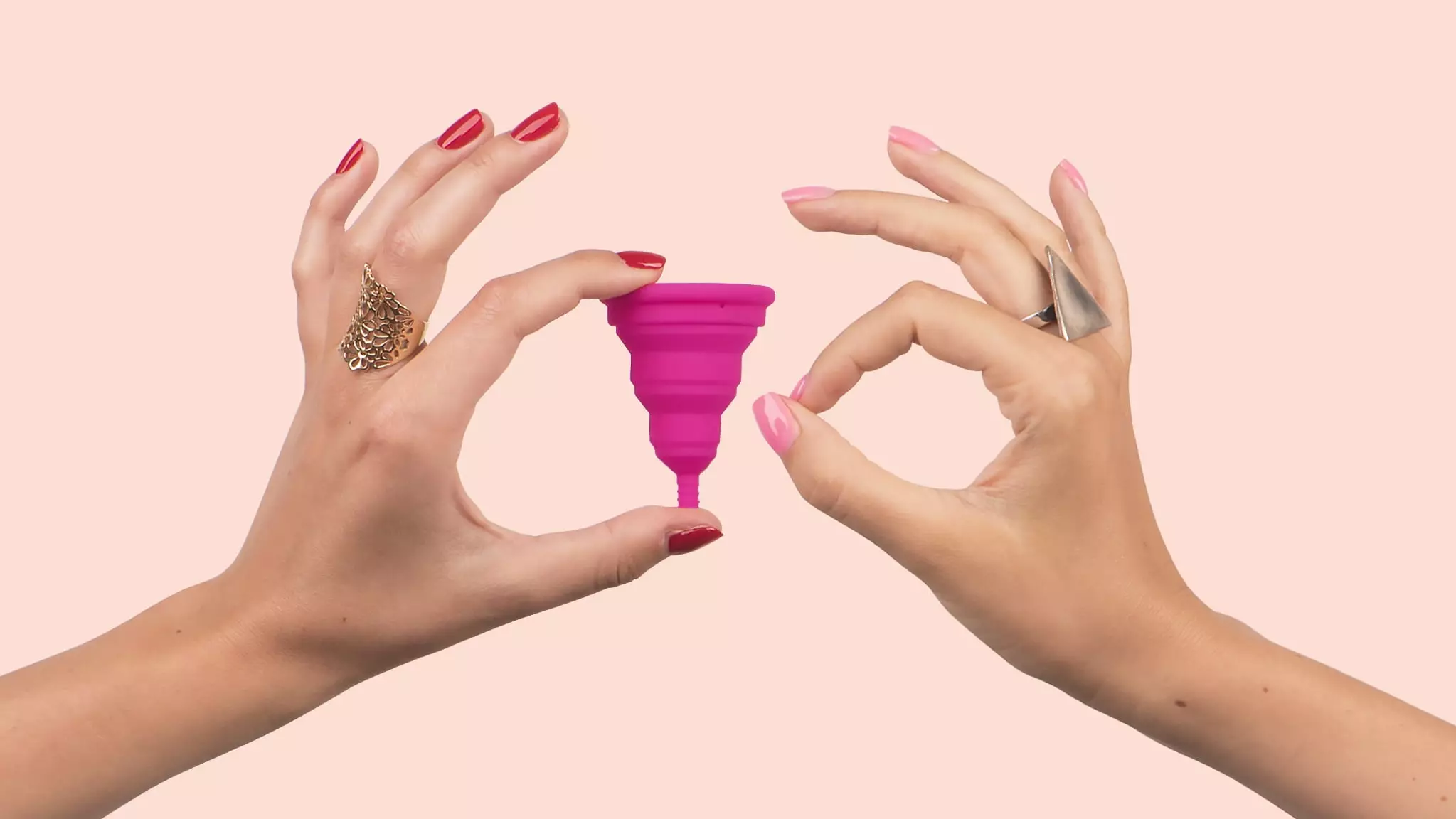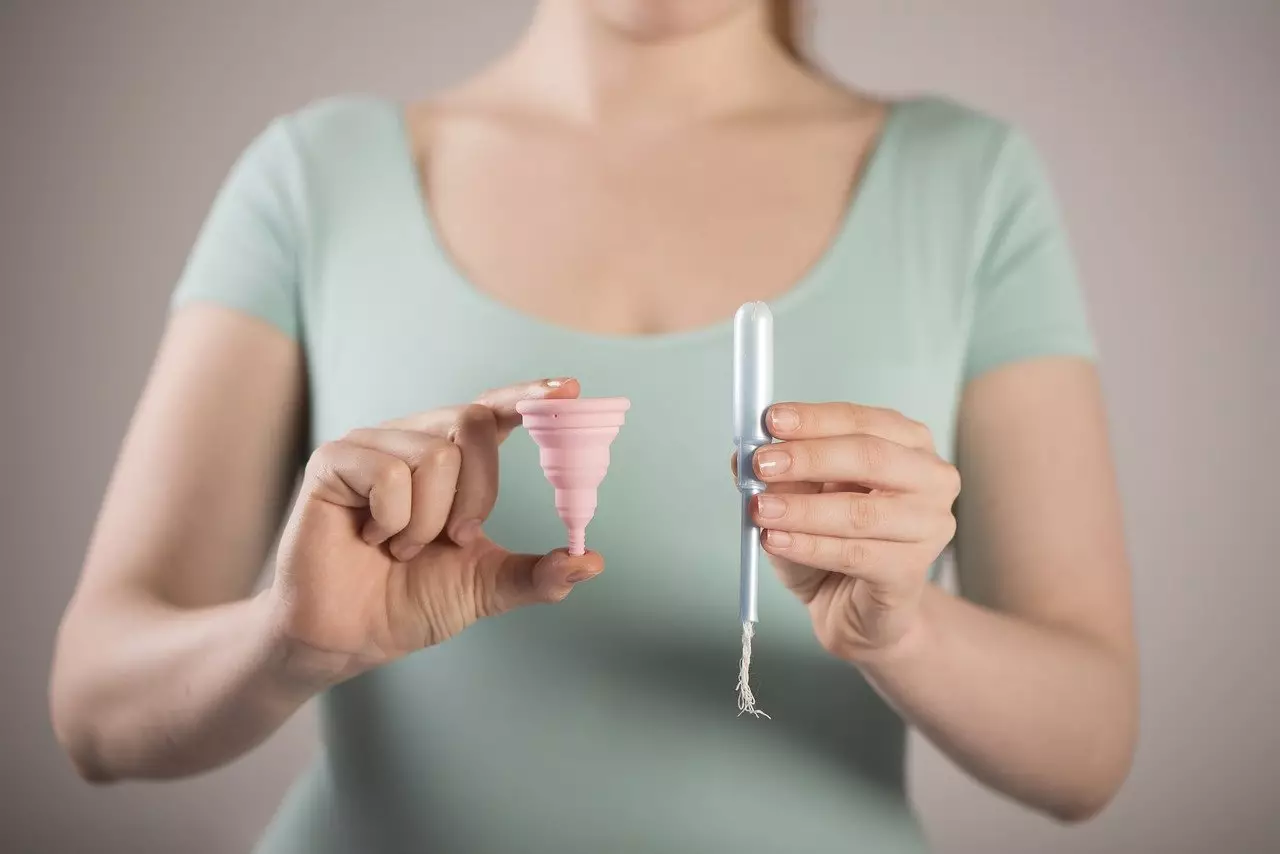
We all know by now that switching to menstrual cups is better for the environment, but now there's a whole new reason for women to worry after terrifying cases of vaginal prolapse were linked to their use.
According to the Chartered Society of Physiotherapy (CSP), the lack of regulation over menstrual cups and poor advice on packaging could, in extreme cases, lead to prolapse - which is when organs in the pelvis slip down and bulge into the vagina.
Some gynaecologists are citing menstrual cup misuse as a reason, according to reports.
One mother-of-two, who spoke to the BBC's Victoria Derbyshire show, suffered her first ever vaginal prolapse after she'd been using a menstrual cup for two months.
Advert
While the link has not been medically proven, the woman claims her gynaecologist said the prolapse "probably happened because of the cup".
She told the programme: "[My gynaecologist] advised me not to use the cup any more. She was not a fan of them at all, especially in women who've already had kids like me."
Whilst there is no firm evidence that menstrual cups are causing prolapse, the CSP feels that better safety advice should be included within packaging.
A spokesperson for the CSP told Tyla: "Some of the information included with menstrual cups can be hard to understand and not accurate, particularly the advice about taking the cup out.

"With many women using cups, this issue needs highlighting and manufacturers should provide credible advice from a respected source that is clear and easy to follow."
Advert
Elaine Miller, a pelvic health physiotherapist, is concerned there could be a link between menstrual cup misuse and prolapses.
She told Tyla: "Some of the advice from brands tells you to bear down using your pelvic muscle to push your cup out by straining and that can damage the pelvic floor."
Elaine stresses that prolapses are quite common, with some 40 per cent of women over 40 experiencing them regardless, but that "the problem is women are straining but also pulling the cup out without having properly broken the seal."

Pulling onto this vacuum will be dragging down your vagina from the inside, in essence.
Advert
We asked Elaine the best way to go about removing a cup that won't contribute to prolapse; she says it varies by brand, but users should ensure the seal is broken before removing.
"Pinch it, or twist it, or get a finger in at the top of it to break the seal where there are little holes around the edge, but if you're pulling whilst the vacuum is still in tact that's problematic," she advises.
Elaine stresses that there is a real knack to it and the information needs to be "clearer" to "help women learn," adding: "It's shocking that menstrual cups don't have to be regulated".

When Tyla looked at some of the leading brands of menstrual cups, they were advising women to use their muscle to 'push the cup out' - something the CSP strongly advises against.
Advert
Lily Cup advises in its 'how to' video to "use your vaginal muscles to push the cup down".
Organicup says in its 'how to' video: "When removing your menstrual cup, pull slightly on the stem while using your abdominal muscles to push the OrganiCup downwards until you can reach the base." It does advice against simply pulling it out though.
Tyla has contacted Lily Cup and Organicup for comment.
Mooncup, however, advises against pulling it out without breaking the seal and has no mention in its video of using your vaginal muscles to push.
Advert
Looking at just three of the leading brands shows how much conflicting advice is out there for women.
Mooncup said in a statement: "We agree with the Chartered Society of Physiotherapy calling for cups to be better regulated. In fact, shouldn't all internal sanitary products be better regulated?"
It added that problems may be arising from the growth in the menstrual cup market which has seen "misleading information around using a menstrual cup circulating, with some products even being sold without any instructions for use."

There is of course no proof that the menstrual cups caused these prolapses mentioned, but the CSP advises that breaking the seal before removing your menstrual cup is the key takeaway from this.
If you are worried about prolapse symptoms, which include dragging sensation in the vagina, pelvic aching, pain in penetration, incontinence, or a lump in the vagina, contact your local NHS clinic who can refer you to a gynaecologist or physiotherapist.
Featured Image Credit: Pxfuel